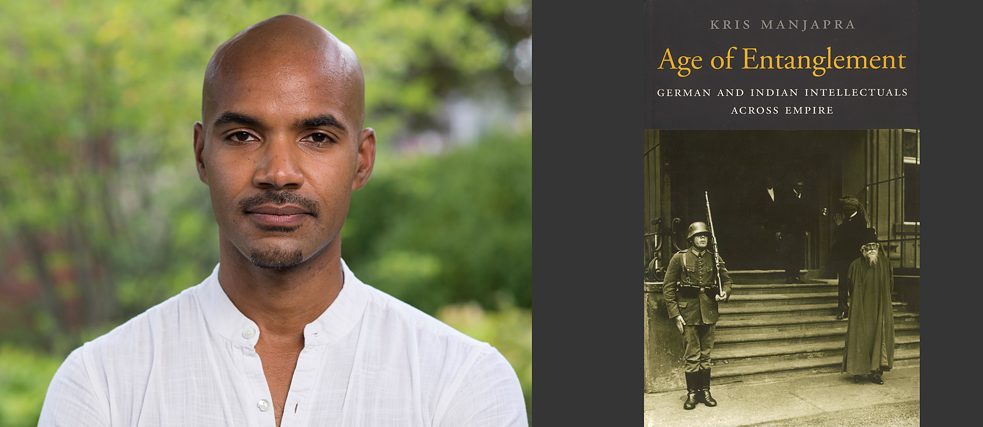Merck-Tagore Award 2019
In conversation with Kris Manjapra

Manjapra’s book Age of Entanglement: German and Indian Intellectuals Across Europe explores patterns of connection linking German and Indian intellectuals from the nineteenth century to the years after World War II. Going outside of the usual suspects and moving beyond the oft-repeated critiques of colonialism, Manjapra’s book finds connections, interactions and exchanges between Indians and Germans in fields as diverse as science, arts and the humanities and elucidates how these entwined itineraries reveal characteristics of a global age where Europe and Asia seemed physically and intellectually closer.
We speak to Prof. Manjapra about his book, and ask him to elucidate what it means to write about these interactions in the present.
Goethe Institut (GI): What does it mean to you to be the recipient of the 2019 Merck-Tagore Prize for literature?
Kris Manjapra (KM): It's a tremendous honor.
GI: What made you want to chronicle Indo-German interactions as you have in Age of Entanglement?
KM: I wouldn't say I chronicled Indo-German interactions, but rather, that I was interested in how history unfolds outside the framework of the traditional categories of nation-states. My book focused on the ways imperial power created connections and entanglements that overwhelmed our familiar parameters of region, nation, and even, empire. The period from the 1880s to the Great Wars of the 20th century was marked by a crisis of authority among established nation-states, and by strong upsurges of nationalism across the colonial world, reminiscent of our own times. I was interested in studying Indian and German history in the tumultuous global context of those times, and I found that I could better understood their distinctive historical trajectories by tracing the unexpected comparisons and relations between them. Let's not forget that Indian anti-colonial nationalism and German imperial nationalism were, in very different ways, two of the most disruptive developments of the twentieth century.
GI: In the book, you discuss multiple encounters and interactions between Indians and Germans – from scholarship to politics to science even touching upon the roots of Bollywood. What do these interactions say about the Indian situation, given that through the times you discuss, India was under British rule?
KM: Indian anti-colonialism used the structures of imperial power, such as those imposed by the British Empire, but also continually skirted, contested, evaded, and transcended those same imposed structures. The concept of "entanglement" serves to capture this anticolonial surplus that develops because of the agency and actions of the colonized. It's important to note that colonial force continues to operate today, both within national and international frameworks. Anti-colonial resistances to the resurgence of colonial force are just as important to study in the contemporary Indian context, as in historical retrospect.
GI: Which are some of the key/surprising encounters you discuss in the book – how did they influenced the socio-political situation in India / South Asia / continue to do so today?
KM: Perhaps the most significant set of entanglements took place between German-speaking intellectuals and a group of activist-scholars organized around Nobel-prize winning Bengali poet, Rabindranath Tagore. This group was comprised of young Hindu, Muslim, and European cultural workers whom I call the "Tagore circle". Members of the Tagore circle included the Jewish Viennese art historian, Stella Kramrisch, the film director and actor, Himansu Rai, the mathematician, Meghnad Saha, and the economist, Zakir Hussain. All of these figures circulated between colonial India and the German-speaking world during the first half of the twentieth century, and all sought to create cultural, political, and intellectual alternatives to British imperial tyranny.
GI: How do you think a continued social and intellectual engagement between Germany and India will continue to benefit both nations?
The richest and most powerful German-Indian engagements, I believe, will continue to take place at the grassroots level, among activists, scholars, and cultural workers circulating within and beyond the contours of national belonging. I also firmly believe that anti-colonialism is alive in our time, and that it manifests in direct politics, but also at the level of culture, the arts, and creative endeavor. In a time like our own, when social and historical consciousness is being walled up and blockaded on both national and international scales, cross-border collaborations and affiliations have a renewed importance in freeing our minds and broadening our spirits.